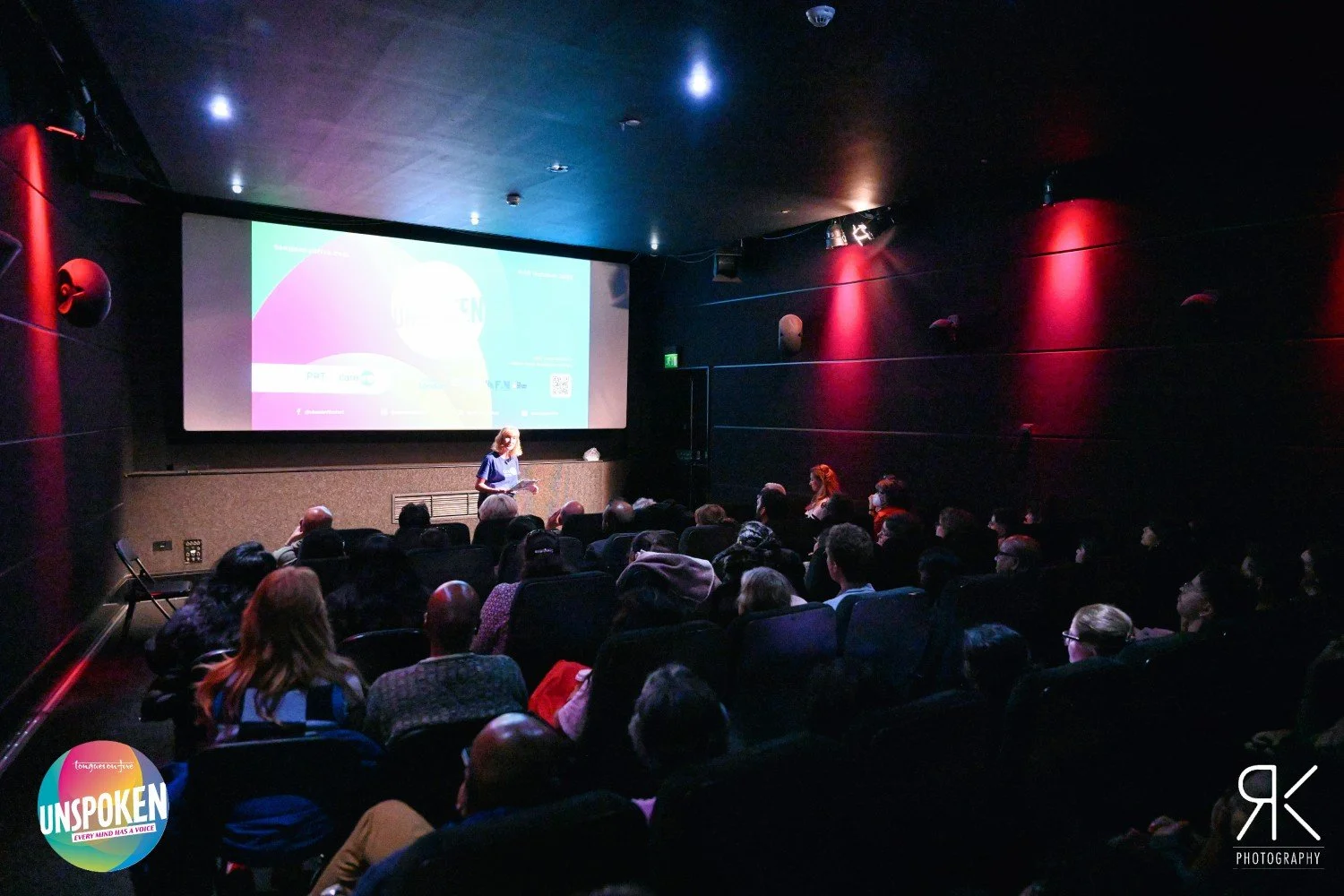Some reflections on Unspoken - a mental health film festival
Trustees, Patrons and Associates of Careif at opening night of film festival
In London, between the 4th - 10th October, Careif supported the South Asian Film Festival, which this year went under the title of Unspoken - a mental health film festival. The festival screened films from India, Pakistan, Sri Lanka and the UK.
Several commentators, including Careif Patron, Dinesh Bhugra, have written about the depiction of mental illness in film. The festival took a different approach – it wanted to utilise films to stimulate discussion about mental health and well-being, to prompt people to look together at the factors in our society that promote unhappiness and ill-being, and to travel beyond the stigma that prevents us talking about mental health.
Cinema has a magical quality, and films can be powerful. We like films to entertain us but for many of us they do more than this. Whilst film is a commercial enterprise, it is also an art form; we can marvel at the visual composition, cinematography, and direction. '
‘Transporting us to a different culture’
Cinema can be enchanting, having the ability to transport us to different worlds, evoke deep emotions, and arouse our imagination. Films can provide a temporary escape from the realities of life. They can evoke a range of emotions including laughter, tears, and suspense. But they may also challenge our thinking, raise questions, and provoke meaningful discussions. They can hold up a mirror to society, exploring complex themes, societal and cultural issues, and moral dilemmas.
Thought-provoking films have the ability to inspire us to reflect on our own values and beliefs. A film from another country can transport us to a different culture and make us empathise with characters whose experiences may be vastly different from our own. Indeed, films have the power to illuminate complex human experiences, and thus to challenge our understanding of ourselves and others, and possibly to break down the barriers between ourselves and the ‘other’.
Promoting discussion
All of the five films proved to be successful in promoting discussion. The first film, Provoked, dealt with the trauma of an abusive marriage and the struggle of a woman to obtain justice and reclaim her life. In many ways this was a full-on challenge to what often remains ‘unspoken’ and something that may have reflected the experiences of some members of the audience.
The second film, Dil Dhadakne Do used the lighter tone of a Bollywood film to highlight the family tensions in a wealthy Indian family. It provoked a discussion on the nature of patriarchy, the family and the position of women, as well as the damage of frustrated ambition, restriction of agency and the invisibility of the disadvantaged.
Following the fun and games of Bollywood we saw a more exacting Sri Lankan film, The Single Tumbler. This dealt with one family’s trauma resulting from the Sri Lankan Civil War, something that resonated with the audience. In this, more intimate film, silence played a dominant role; something dealt with in the subsequent discussion and pointed out by the composer of the film’s score who was a guest at the showing.
Final festival films
The final films of the festival were a Pakistan film, Zindagi Tamasha, and a UK-based movie, Mogul Mowgli.
Zindagi Tamasha (‘Circus of Life’) is a masterful account of the shame and denunciation faced by a respected elder when his enthusiastic dancing at a wedding is filmed by bystander and goes viral on social media. He is criticised by his daughter and rejected by his neighbours and friends. This good man and devout Muslim is destroyed by their prejudice and his sadness and loss of dignity is palpable.
The discussion brought out the challenging issues faced in a strict Muslim society and the search for the identity of an elderly man who gradually comes to realize his move from accepted to ‘other’ status. The final film, Mogul Mowgli, was appropriately shown on World Mental Health Day. It tells the story of a British-Pakistani rapper, Zed, who is struck down by a debilitating neurological disorder. It brings out not only the matter of his thwarted ambitions, but the tensions with his more traditional family.
The initial linear narrative of the story is interrupted with dream-like scenes of Zeds bizarre visual and auditory hallucinations, and his father’s own journey when a child at the time of partition. The post-film discussion reflected not only the tensions between generations, but also their frustrated aspirations.
Promoting the importance of mental health
My own view was that the festival’s aims were met – utilise the magic of films to not only to tell a story or entertain, but also to provoke people to get together in comfortable surroundings and open up their minds and emotions to public discussion. Engage the best in people when they get together in a collective to promote the importance of mental health and well-being not only for the sake of the individual, but for the sake of social solidarity.
Photos from the festival
Click photos below to enlarge. All photos by Raakesh Katwa photography.













